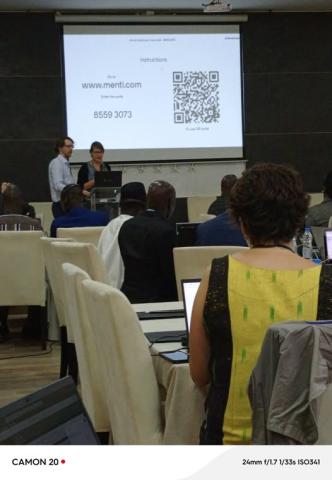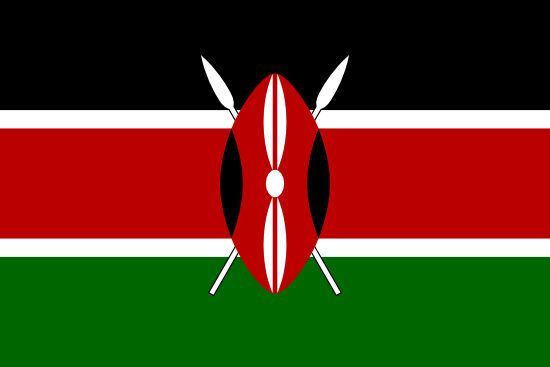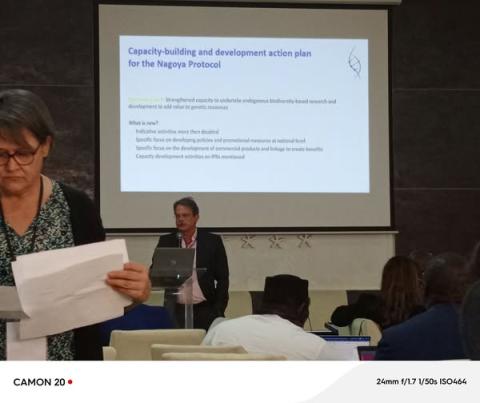Pan-African Workshop: Supporting an Enabling Environment for ABS and Biotrade
Pan-African Workshop: Supporting an Enabling Environment for ABS and Biotrade
3 – 7 February 2025, Saly, Senegal
1. Introduction
The Pan-African Workshop on Supporting an Enabling Environment for Access and Benefit Sharing (ABS) and Biotrade was held in Saly, Senegal, from 3rd to 7th February 2025. The event, organized by the ABS Capacity Development Initiative and BioInnovation Africa, brought together stakeholders from across Africa to discuss strategies and best practices for implementing ABS and enhancing Biotrade in alignment with international agreements such as the Nagoya Protocol and the International Treaty on Plant Genetic Resources for Food and Agriculture (ITPGRFA).
2. Workshop Overview
The workshop commenced with a technical introduction, including objectives, agenda setting, and an overview of the ABS Capacity Development Initiative and BioInnovation Africa. The official opening featured remarks from host country representatives, partners, and donors, followed by an overview of COP 16 / MOP 5 outcomes, focusing on ABS and Biotrade-related decisions.
3. Key Discussions and Outcomes
-
Nagoya Protocol Capacity Development Framework:
Discussions centered on new developments in the framework, training modules for ABS and Biotrade implementation, and capacity development priorities to achieve Target 13 of the Global Biodiversity Framework (GBF). Participants highlighted the importance of tailored capacity-building programs that address country-specific challenges and needs. -
NBSAPs as Vehicles for GBF Implementation:
The role of National Biodiversity Strategies and Action Plans (NBSAPs) in mainstreaming ABS and Biotrade was emphasized, with panel discussions showcasing various African countries' experiences in revising their NBSAPs to incorporate ABS principles. -
Status of ABS Implementation in Africa:
An overview of the current status of ABS implementation in Africa was presented, identifying success factors, challenges, and the support required to strengthen ABS frameworks. Practical examples demonstrated how countries are navigating legal and institutional complexities to facilitate ABS. -
Valorisation and Biotrade:
Valorisation, as a means to enhance economic returns from genetic resources, was explored in depth. Participants discussed different business models and partnerships that foster sustainable Biotrade, with a focus on creating value in local and international markets. -
Deep Dive into Baobab:
The workshop included a dedicated session on the Baobab value chain, presenting African and European perspectives. The session underscored the importance of sustainable harvesting practices and value addition to benefit local communities.
4. Field Trip and Practical Insights
A field trip was conducted to offer participants firsthand experience of ABS and Biotrade practices in Senegal. Participants explored local Baobab value chains, examining the economic and social impacts of Biotrade on local communities. Research questions facilitated in-depth discussions on sustainable use, community benefits, and market access.
5. Key Recommendations
-
Strengthening Legal and Institutional Frameworks:
African countries should enhance their legal and institutional frameworks for ABS to ensure equitable sharing of benefits arising from genetic resources. -
Capacity Building and Awareness:
Continuous capacity-building initiatives and awareness campaigns are essential to empower stakeholders, particularly indigenous peoples and local communities, to engage in ABS and Biotrade. -
Regional Collaboration:
Strengthening regional collaboration can enhance resource-sharing, foster innovation, and build resilience in implementing ABS and Biotrade initiatives. -
Market Access and Valorisation:
Facilitating market access and supporting value addition in Biotrade are critical to enhancing the economic viability of genetic resources and promoting sustainable development.
6. Conclusion
The Pan-African Workshop on Supporting an Enabling Environment for ABS and Biotrade provided a valuable platform for African countries to exchange knowledge, discuss challenges, and explore opportunities in ABS and Biotrade. The insights gained and recommendations developed during the workshop will contribute significantly to advancing the implementation of the Nagoya Protocol and enhancing Biotrade across the continent. Participants expressed a strong commitment to leveraging ABS and Biotrade as tools for sustainable development and biodiversity conservation in Africa.


